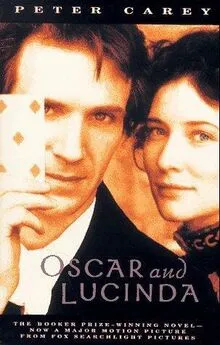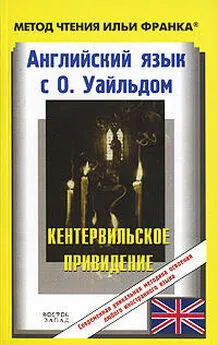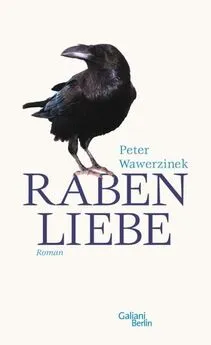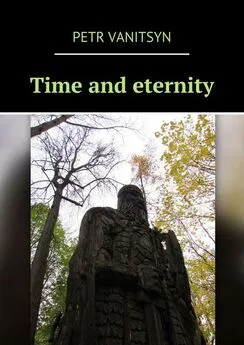Peter Carey - Oscar and Lucinda
- Название:Oscar and Lucinda
- Автор:
- Жанр:
- Издательство:Vintage Books
- Год:1988
- Город:New York
- ISBN:0-679-77750-4
- Рейтинг:
- Избранное:Добавить в избранное
-
Отзывы:
-
Ваша оценка:
Peter Carey - Oscar and Lucinda краткое содержание
The Booker Prize-winning novel-now a major motion picture from Fox Searchlight Pictures.
This sweeping, irrepressibly inventive novel, is a romance, but a romance of the sort that could only take place in nineteenth-century Australia. For only on that sprawling continent-a haven for misfits of both the animal and human kingdoms-could a nervous Anglican minister who gambles on the instructions of the Divine become allied with a teenaged heiress who buys a glassworks to help liberate her sex. And only the prodigious imagination of Peter Carey could implicate Oscar and Lucinda in a narrative of love and commerce, religion and colonialism, that culminates in a half-mad expedition to transport a glass church across the Outback.
Oscar and Lucinda - читать онлайн бесплатно полную версию (весь текст целиком)
Интервал:
Закладка:
He knew she would
he asked if he might j,110'like the.elder H «pkins's book, and yet when but rather in the hop Cad her a little' he d>d not do it provocatively, "Melody,"hesaid, '-^ that he might be wrong. must share my secret with you." They had not
164
Hymns
spoken since they left the West End and, as this silence was unusual, he knew she would be uneasy. He did not normally read at all, and he knew his purchase of a book would seem strange. Still, he pulled the string on the green parcel, smiling queerly in her direction.
"We are almost there, dearest," she said, but took the paper and string from him and began to tidy it. Wardley-Fish did not see the reproof intended.
"A little only," he said. "Here. It is written by the Odd Bod's pater and not in the least what one would expect."
She nodded, severely, she hoped.
Wardley-Fish opened the book, not at the beginning, but at random. " The body is about one and a half inches thick.' " he said (this was not quite the sort of thing he sought) " 'and the same in height, of a purplish brown hue marked with longitudinal bands of a dull lilac, each band margined with a darker colour.' "
Melody Clutterbuck looked at her fiancé, perplexed. They passed a troop of guardsmen on horseback, a sight she normally loved. She did not even notice. She opened her mouth to speak, to object to the unsavoury scent-there was no other way to think of it-of this writing. It certainly did not seem appropriate for ladies. But her fiancé was ahead of her. He was already galloping on in search of better evidence. A paragraph here. A sentence there.
"You see, you see," he exclaimed, his eyes glistening wet. She had only seen him become this excited about horses. "The old boy is a marvel. The old boy is alarming. It is the 'Yea!' Melody, isn't it? Your father's 'Yea!' Mr Carlyle's 'Eternal Yea!' The one your pater speaks of." "Ian, please!" "From this," he waved the book with great emotion, "to a room with no hre."
"Dearest, you make no sense."
" Within a day or two after this, the other two of the same species lay their spawn.' No, no dearest. It is botany, or zoology. The old fellow is a fearsome Evangelical so we need not worry ourselves about propriety."
But talk as he might, he knew he had gone too far. He surrendered 'he book when she held out her left hand for it and he watched it join its partner-she was, in spite of her firm chin, very agitated-as the Pair of them, left and right, attempted to collaborate in rewrapping tl» e parcel. I am frightened of her, he thought, and it is far too young to know
such a thing.
165
Oscar and Lucinda
It was the Hon. Mary Braden-Loch's day At Home. The young clergyman performed expertly. Melody Qurterbuck was pleased to have him much admired and had soon forgiven him his outburst in the cab. She was alarmed therefore to notice, in a break in the conversation, the dead quality of his lovely eyes. She could not guess that they held the indefinite sky of a window three storeys above the streets of Netting Hill. ^?
It was Mr Paxton-the same Mr Paxton who designed the Crystal Palace-who advised Lucinda Leplastrier to return to Sydney on the Leviathan. He spoke as an engineer, he said, and there is no doubt she would see nothing like it "so long as sanity is the general condition in my profession."
Lucinda expressed doubt that she should entrust her life to a vessel so described. He made it sound as if the ship were quite unsound.
"Its ability to float at sea is inversely proportional to the likelihood of it floating on the season of commerce. Go, " he said, "it is as safe as an elephant. It will be a great experience, aye, and a rare one, too, because she will be bankrupt two years from now, and Mr Legare can go back to building bridges which is more his line of work."
She bought her ticket with her customary confusion about the price. It was fifty-five pounds for second class. It was too much money. It was seventy pounds for first class. She could afford it. She bought a first-class ticket, but in all her to-ing and fro-ing about the rights and wrongs of this, she never imagined that the largest ship ever built would be so empty. London had been lonely enough. This was worse. And it was because of this, because of the grand and supercilious spaces, that she had come down on to the wharf and she was, the minute her feet were on the ground, much happier.
166
In a Trice
It was like descending from a town hall to a market place-suddenly there was life all around hersteel rails along the wharf and cranes rolling to and fro, donkey engines thumping, white blossoms of steam, and even the rain, although it wet her boots, did not depress her. She was pleased to be down here, amongst practical people. There were practical smells-coal, coke, anthracite, mineral oil. It was the mineral oil that made her think about her glassworks with which, in her absence, she had developed a closer and more affectionate relationship. She forgot the anxieties and tensions her ownership produced and felt, '} now, on Southampton wharf, sympathetically drawn to the man who; smelt of mineral oil-an engineer, she guessed, a frecklefaced Scot i with a clenched-up face who would never be welcome in Marian Evans's drawing room. Her glassworks smelt like this. All glassworks did. At the glassworks she visited in Trent, in London itself, and even in Nottingham where they were making sheet glass for Mr Paxton, there was the same smell, the smell of her own works on Darling Harbour. The pear wood they used to turn the foot of a vase would be soaked, not just in water, but in mineral oil, and she was suddenly made impatient to return-as impatient as she had been to leave-to the aroma of burnt pear wood, mineral oil, and the acrid chemical smells of sulphates and chromâtes oxidizing to green and yellow.
She was twenty-two years old and fashionably dressed in grey moiré. Her back was curved; her backside, as was the fashion, pronounced but not to the degree suggested by George Eliot in a sharp letter written at that time. The pamphleteer's daughter, according to the famous novelist, could have sat a tea tray on the ledge of her backside, but George Eliot was fifty-eight years old and bad tempered with kidney stones and she had misunderstood the girl completely. She is such a "little" thing, it would appear that all conversation has been squeezed out of her. She sits with her hands pressed in her lap, totally silent, but with no consciousness of her social inadequacy and it is difficult, after the second hour, to maintain one's natural sympathy for her. George [Lewes] was kind and took her to the British Museum and then to tea where she seems to have attempted to seduce him into a game of chance. Apart from this outburst she seems to have said little, and it is so difficult, no matter what one's intentions, to hold a conversation with someone who will not talk.
Lucinda had expected her mother's friend to share her mother's enthusiasms. But while George Eliot had encouraged Elizabeth's essays and pamphlets, she had never shared "Elizabeth's fanatacism" for
167
Oscar and Lucinda
factories. And while she was interested to learn that the orphan had actually purchased a factory, she did not wish to discuss the manufacture of glass. If Lucinda had employed female glass blowers, perhaps it would have been different, but her single attempt in that direction had been a failure. George Eliot was not interested, and she had work to do.
Lucinda thought George Eliot was a snob. She preferred Mr Paxton who laughed at her outright but who had, just the same, explained his new project, presented her with a blueprint of the broad schemata, and written her letters of introduction to the glassworks he dealt with. To be patronized by Mr Paxton was an altogether more pleasant experience than being disapproved of by her mother's famous friend.
Lucinda had come to London thinking of it as "Home." It was soon clear that this great sooty machine was not home at all. She had left Sydney with thoughts of marriage and children. She had left-^although it did not make her comfortable to remember this-in a temper with Dennis Hasset who, whilst remaining her close friend and confidante, obviously did not think her a suitable candidate for marriage. She had left him to stew in the juices of his own regret. She did not doubt she would have proposals in London, if only because of her wealth. She had steeled herself to fend off undesirables. Nothing like this had happened, although the stern Mr Paxton had behaved, twice, in an ungentlemanly way.
She stepped back to allow the steam crane to pass along its rails and, looking up to see what it might be carrying, saw a bellowing Poll Hereford with a canvas sling under its middle. The crane stopped and began to lower its burden on to the top of that mighty riveted cliff wall which was Leviathan.
The wharf resembled a sale yard and reminded the woman with the small bright eyes of the days she had gone into Parramatta with her father to buy a pig or sell the vealers. The air was redolent with fear and wet fur. The beasts were scouring, and thinking of this, she resolved to stand beneath no more airborne beasts.
She walked past the corralled animals, and did not mind the stares of the oilskin-wrapped shepherds who could not imagine why a woman, one of her class, would walk along a busy wharf in the rain. She was accustomed to this sort of stare and while she felt the implicit threat in it-the voodoo of a group of men-she was now a woman who employed such men, and her old fears in the face of their insulting confidence were allayed by the knowledge of her economic strength. It was wrong that she had this strength but she was, thank 168
In a Trice
God, pleased to have it. She did not make them lower their eyes, but she already had the power to do so. This power was primed by money, but it was not fuelled by it. And it was this, this turbulent, often angry sense of her own power, that was most responsible for her being lonely in London. Even George Eliot, no matter what her fiction might suggest, was used to young ladies who lowered their eyes in deference to her own. Lucinda did not do so. The two women locked eyes and George Eliot mentions (in the letter already quoted from) "a quite peculiar tendency to stare." It may well have been this, not her bitsand-pieces accent, her interest in trade, her lack of conversational skills, her sometimes blunt opinions or her unladylike way of blowing her noselike a walrus, said George Eliot-that made her seem so alien. And when she did, at last, lower her eyes, her lids were heavy and sensuous. They produced an effect which was ungenerously described as "sly."
She walked past the long-nosed Derby hogs, all pushed into each other like pieces in a puzzle, and found a great collection of wet and rusty cages and two men arguing over one of them, A hansom clipped past them, bursting with clergymen, or so it seemed. She noticed the unusual red hair of one of them, but only in passing, being more taken by the argument which concerned one cage only, it being, apparently through error, filled with wet and shivering rabbits.
"Crikey Moses!" said the short one. He had an eager sort of face with heavy sandy eyebrows pressing down upon his blinking eyes. "The blessed colony is half eaten out by rabbits. Why would I want more?" He screwed up his face and sent his voice up into falsetto.
Читать дальшеИнтервал:
Закладка:









